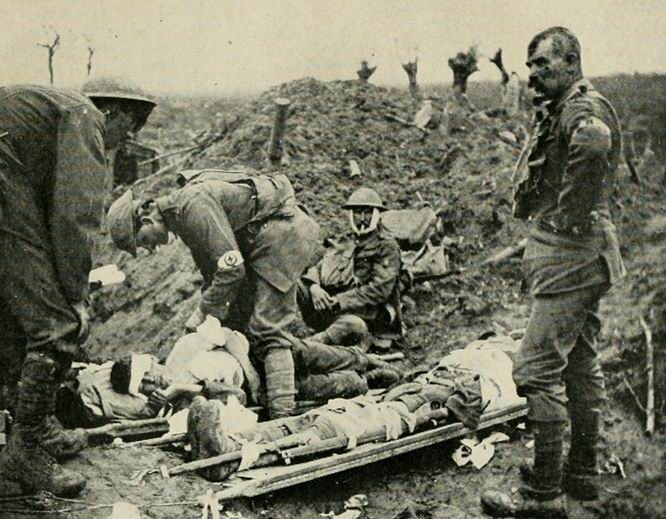Weston remembers: The role of healthcare Professionals during the First World War
Home This year Remembrance Day will mark 100 years since the start of the Great War in 1914. The war affected everyone - both those who went to war and those left behind.
This year Remembrance Day will mark 100 years since the start of the Great War in 1914. The war affected everyone - both those who went to war and those left behind.
It had a tremulous effect on the soldiers, and whose healthcare professionals, doctors and nurses who either nurse them on the front line or at home.
Speaking about the role of nurses during war, Director of Nursing, Chris Perry said: “Nurses like Florence Nightingale and Mary Seacole are very famous for their accomplishments of nursing during wartime. In fact some of the nursing techniques we still use today originated from those developed during war.
“Nursing today is very different and a ‘war’ may not be one fought on a battle line. This Armistice Day, my thoughts will be with nurses across the globe battling diseases like Ebola and putting their own lives at risk every day to care for others. “
Below are a number of websites which provides more information about the various aspects of war and the role in which healthcare professionals played.
Wounding in World War One.
This article written by DR. Julie Anderson provides an excellent overview of the role of doctors and nurses as well as how they treated patients.
http://www.bl.uk/world-war-one/articles/wounding-in-world-war-one
War and Medicine
The science museum website has a topic of war and medicine, which covers WW1 and discusses how medicine and its different specialisms grow and developed in WW1.
http://www.sciencemuseum.org.uk/broughttolife/themes/war.aspx
How did WW1 change the way we treat war injuries today?
http://www.bbc.co.uk/guides/zs3wpv4#z34mvcw
Miss Bee Martin, Consultant Vascular Surgeon and Medical Director said: “Innovations at the time of the First World War led to huge advantages in the fields of neuro-surgery, plastic, orthopaedic, vascular and general surgery. Sadly, injuries inflicted in more recent conflicts have led to great improvements in the management of major blast wounds, bleeding and prosthetics.
“This isn’t something that affected us in the past. Some of our staff at Weston have gone as medical professionals to care for people during recent conflicts in place such as Afghanistan. During the two minute silence I will be reflecting on the plight of all clinical staff in modern day war zones. Some may be equipped to at least the level of the NHS, but nevertheless are working in very challenging circumstances.
“I will also be thinking of those striving to save lives and reduce disability with very limited resource in other areas of conflict.”
To read the press release CLICK HERE